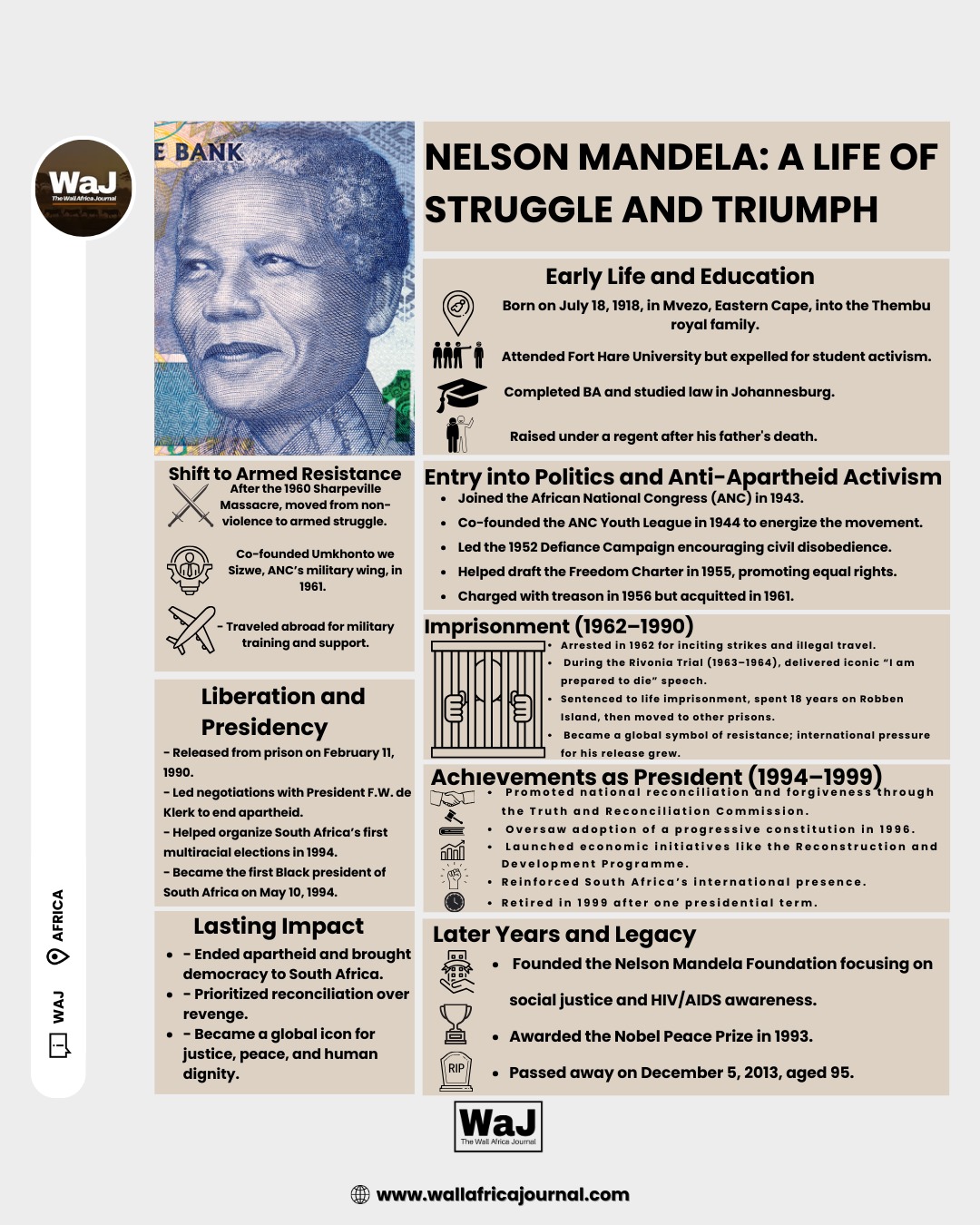
Nelson Mandela, born in 1918 into South Africa’s Thembu royal family, became a global symbol of resistance against apartheid. After joining the African National Congress (ANC) in 1943, he helped form its Youth League and led major campaigns against racial segregation.
Following the Sharpeville Massacre, Mandela shifted to armed resistance and co-founded Umkhonto we Sizwe. Arrested in 1962, he spent 27 years in prison, during which he became the face of the anti-apartheid struggle. Released in 1990, Mandela led negotiations that peacefully ended apartheid.
In 1994, he became South Africa’s first Black president, focusing on national reconciliation, constitutional reform, and economic upliftment. After stepping down in 1999, Mandela continued humanitarian work until his death in 2013.
His legacy includes ending apartheid, establishing democracy, promoting reconciliation, and inspiring global movements for justice.

